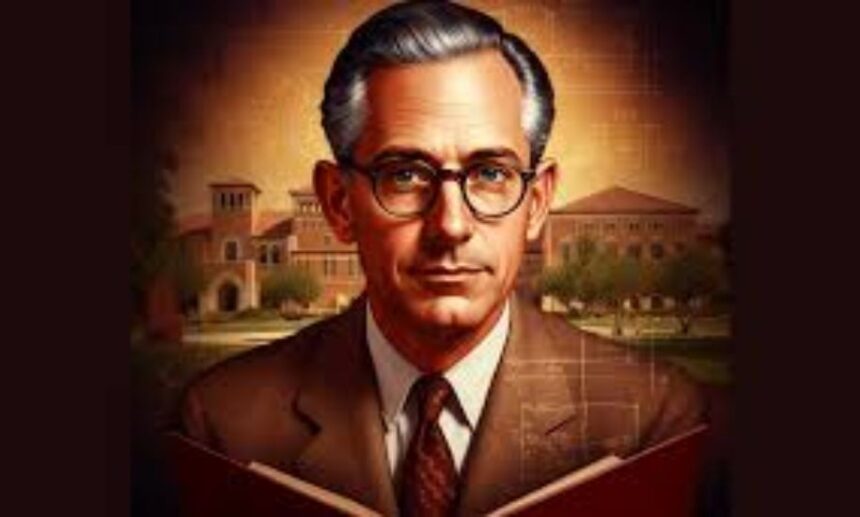Bruce McElderry is a name that resonates within the world of academia, particularly in the field of American literature. As a professor at the University of California, Los Angeles (UCLA), McElderry’s contributions to literary analysis have left an indelible mark on both students and scholars alike. His work is celebrated for its depth of understanding, rigorous scholarly approach, and his ability to analyze the complexities of American texts with unparalleled insight. Through his extensive research, McElderry has greatly influenced the way in which American literature is taught and understood today.
At Market Blick, we delve deeper into the legacy of Bruce McElderry and examine his work that has shaped the study of American literary giants. Through this article, we explore McElderry’s scholarly journey, his contributions to literature, and his enduring influence on future generations of academics.
Early Life and Education of Bruce McElderry
Bruce McElderry’s intellectual journey began long before he became a name synonymous with American literature studies. Born with a natural inclination toward the humanities, McElderry pursued his undergraduate studies at a prestigious institution, where he quickly demonstrated an aptitude for literature. His passion for American authors was sparked early on during his academic career, particularly in works that highlighted the intersection of culture, history, and identity within the American context.
He went on to complete his graduate studies, earning a Ph.D. in English literature with a focus on American writers. His doctoral thesis, which centered on the evolution of American identity in the works of post-Civil War authors, became a foundational piece of scholarship in the field. McElderry’s early academic experiences set the stage for his lifelong dedication to understanding how American literature reflects the social and political landscape of its time.
McElderry’s Work at UCLA: Shaping the Curriculum
Bruce McElderry’s role at UCLA as a professor and scholar was pivotal in shaping the university’s literary curriculum. As an educator, he introduced students to a wide range of American authors, many of whom had been overlooked or underappreciated by traditional literary studies. McElderry was committed to making American literature more accessible, emphasizing the historical and cultural contexts in which these works were created.
At UCLA, McElderry not only taught classes but also conducted in-depth seminars and workshops that encouraged students to engage with primary texts in innovative ways. His approach to teaching was rooted in the belief that literature should be analyzed through multiple lenses, including sociopolitical, historical, and psychological perspectives. His classes often revolved around debates and discussions about the meaning of literary works, sparking critical thinking and fostering a deep appreciation for American literature among his students.
Contributions to American Literary Criticism
Bruce McElderry’s influence extended far beyond the classroom. He was widely recognized for his contributions to American literary criticism, particularly through his groundbreaking research on 19th and 20th-century American authors. His work involved a deep, contextual analysis of texts by iconic figures such as Mark Twain, Herman Melville, and William Faulkner, among others.
One of McElderry’s significant scholarly achievements was his exploration of American realism and modernism, two movements that profoundly shaped the literary landscape. By examining the ways in which authors from these movements dealt with issues like class, race, and individualism, McElderry helped to reframe the understanding of these literary periods. His analysis of authors’ portrayals of American identity and culture continues to be cited by scholars and students of American literature today.
In addition to his focus on realism and modernism, McElderry’s research also shed light on the often-overlooked works of African American writers. His advocacy for a more inclusive and diverse canon of American literature played a key role in broadening the scope of literary studies at UCLA and beyond. He argued that understanding the complexities of race and identity was central to understanding the evolution of American literature, and his work paved the way for future scholars to continue this important research.
McElderry’s Publications and Academic Legacy
Bruce McElderry authored numerous publications throughout his career, many of which have become standard texts for students and scholars of American literature. His books, articles, and essays have been widely published in academic journals and remain essential readings for those seeking a deeper understanding of American literary traditions.
His landmark book, The Narrative of American Identity, remains a seminal text in the field, examining how literature has both shaped and been shaped by the concept of American identity. McElderry’s ability to synthesize historical, literary, and cultural contexts in his analyses made his work invaluable to both academic and general readers alike.
Beyond his books, McElderry also contributed to several academic journals, writing pieces that examined contemporary trends in American literature and their connections to historical movements. His scholarship remains a cornerstone for anyone studying American literary traditions, and his ability to balance rigorous academic analysis with accessible writing has made his work resonate with a broad audience.
The Impact of Bruce McElderry on Future Generations
One of the most enduring aspects of Bruce McElderry’s career is the lasting impact he has had on his students and the academic community. His innovative teaching methods and scholarly contributions have influenced countless students, many of whom have gone on to successful careers in academia and literature.
McElderry’s legacy is not just in the papers he published or the books he wrote, but in the way he reshaped the study of American literature. His work emphasized the importance of a comprehensive approach to literature—one that incorporates social, historical, and political contexts. This holistic view of literary analysis has become a defining feature of American literary studies in the 21st century.
Many of McElderry’s former students now hold prominent positions in academic institutions around the world, continuing his work and carrying forward the intellectual rigor he instilled in them. His influence is seen in the continued popularity of American literature courses that emphasize diversity, identity, and cultural representation, all key areas that McElderry championed during his career.
Bruce McElderry’s Influence on Modern American Literature Scholarship
As we move further into the 21st century, the relevance of McElderry’s scholarship only grows. With the rise of interdisciplinary studies and global perspectives in literary criticism, McElderry’s work stands as a testament to the power of literature to illuminate the human experience. His analyses of American authors are foundational to contemporary discussions on race, gender, and power dynamics in the United States.
At Market Blick, we see the increasing importance of McElderry’s contributions to the study of American literature. His ideas continue to resonate within the broader academic community, influencing how literature is taught, critiqued, and appreciated. The scholarly debates he ignited remain essential for understanding the complexities of American literature, and his work will undoubtedly inspire future generations of scholars to explore the nuanced intersections of culture, history, and identity in literature.
Conclusion: A Legacy That Endures
Bruce McElderry’s contributions to American literary studies are vast and lasting. Through his teaching, research, and publications, he transformed how we understand American literature and its role in shaping national identity. His impact on UCLA, his students, and the broader academic community continues to reverberate, ensuring that his intellectual legacy will remain a vital part of the scholarly conversation for years to come.
His work has provided a framework for exploring the complexities of American literature—revealing how these texts reflect the ever-evolving story of the United States. As scholars continue to build on McElderry’s groundbreaking analyses, his influence will be felt across academic disciplines, further solidifying his place as one of the foremost scholars in American literature.







